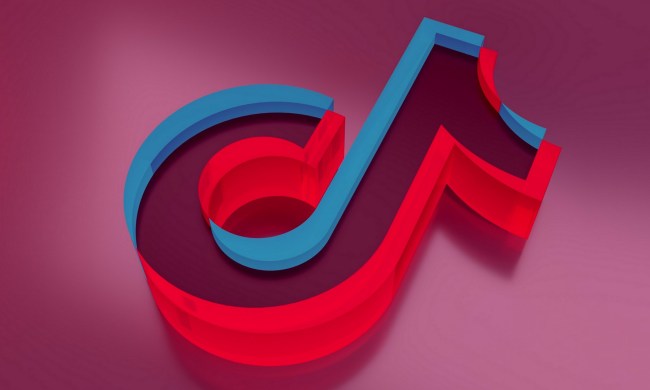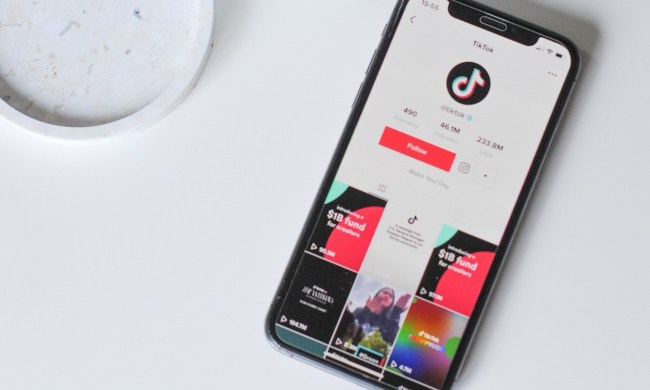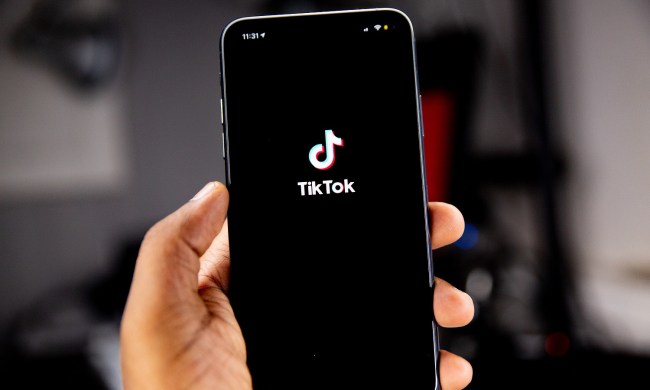Black creators on TikTok claim the popular social media app is still “shadow banning” their content — despite the company’s pledge to better support creators of color after weeks of criticism of the platform. Shadow banning refers to blocking or partially blocking a user or their content from a web forum so it’s not immediately apparent to the user that they have been banned.
Black creators told Digital Trends that they’ve seen their follower and view counts drastically shrink after they posted about experiencing racism on the app or the Black Lives Matter movement, or after they spoke about race broadly. Some claim they’ve had their videos taken down without being given a reason — leaving them left to wonder why.
“I’ve had multiple videos taken down and they don’t respond at all,” said Nakita David, who has 380,000 followers on the app, in an interview with Digital Trends. “If you work really hard on a video and TikTok just decides to delete it for whatever reason, it’s the worst pain.”
Another creator, Cindy Manu, 19, who lives in South London, said when she started her TikTok in September 2019, she was getting over 50,000 views on average. She would regularly be featured on the app’s coveted “For You” page — where popular videos are shown to a wider audience — garnering her millions of views.
Then, as worldwide Black Lives Matter protests began to pick up, Manu noticed videos go missing from her feed, and her view count sharply dropped to just a couple hundred views, even though she didn’t switch up her content at all.
“I actually went back through my videos and looked to see if there was anything explicit or swearing, but there was literally nothing,” she told Digital Trends. “That’s when I realized TikTok took it down itself. It made me really annoyed.”
A TikTok spokesperson denied the allegation in a statement about shadow banning.
“This isn’t something that we do,” said A.B. Obi-Okoye, a spokesperson for TikTok, in an email to Digital Trends. “We make our Community Guidelines publicly available and encourage users to review them so they can understand what type of content isn’t permitted on the platform. Users also have the ability to appeal decisions they believe to have been made in error.”
TikTok has come under fire in recent weeks, not only from the United States government over security concerns, but also for how it moderates the content of its 800 million active users.
TikTok has been accused of hiding hashtags like #BlackLivesMatter, suppressing content relating to protests in Hong Kong, and limiting the reach of videos made by disabled users.
Internal documents obtained by The Intercept also revealed that moderators were told to stifle content made by users “deemed too ugly, poor, or disabled.”
Selective promotion
In May, thousands of TikTok users changed their profile pictures to the Black power symbol in an effort to show support for Black creators reportedly being censored on the app. Users were also encouraged to follow Black creators and share their content instead of their own.
“I knew people who were on there for years and only had 200 followers,” said Lex Scott, the organizer of May’s #BlackoutTuesday protest on TikTok and founder of the Utah chapter of Black Lives Matter. “Then you see these people go from 200 followers to over 10,000 during the blackout. It was really powerful.”
Following the protest on the app, TikTok released a series of actions that it would take to better support Black creators. In June, the company said, “we acknowledge and apologize to our Black creators and community who have felt unsafe, unsupported, or suppressed.”
TikTok added it would take “concrete actions” to build a better, more inclusive platform.
But some Black creators and activists, like Scott, believe TikTok’s promises were short-lived.
“I am shadow banned,” said Scott. “Our content is being restricted, and I believe it may be by design as well. I think we all just want to know why they are doing this to us.”
David, who posts comedy and commentary, said her posts about Black Lives Matter don’t do as well as they used to when she created her account late last year.
“It’s been a lot worse since they said they would start working with Black creators,” she said. “The Black Lives Matter movement is nowhere to be seen on TikTok anymore. It’s really sad.”
‘It affects your mental health’
Black creators like David and Manu have attempted to reach out to TikTok to understand why their posts were deleted or how they violated community guidelines, but said they did not hear back.
“It affects your mental health,” Manu said. “You think it’s your fault that your videos aren’t doing well.”
And since the influencer industry has become a lucrative career path for the social media-savvy, shadow banning also threatens another essential aspect of a Black creator’s life: Income.
“I’ve spent a lot of time making content that should be doing good and getting recognition for it to get nothing. That messes with my income,” said 17-year-old Denise Nguimdoh, who has over 300,000 followers. “We know when our content is doing well, so it is really obvious to us when we are shadow banned.”
“I’ve had brand deals and promos, but now it all just came to a stop,” said Manu. “A couple months ago, I was getting [direct messages]; now I haven’t gotten anything and I’ve stopped gaining followers.”
Before her follower count plateaued and her views took a downfall, Manu said she was able to navigate promotional deals regularly and have a bonus income along with her job as a retail associate at a department store. Now, she said, she is just frustrated.
“Everything was just starting to look really promising,” said Manu. “I feel like I’ve come out and made some good content and just got like 500 views. Now I have to work twice as hard to get my content out there than white creators.”
Both Manu and David said they plan to start focusing their attention on other social media platforms outside of TikTok — like YouTube and Instagram — especially if they continue to feel like their content is being shadow banned.
“I think TikTok needs to be more diverse,” said David. “TikTok is a steppingstone, but you can never rely on TikTok because it’s not consistent.”



